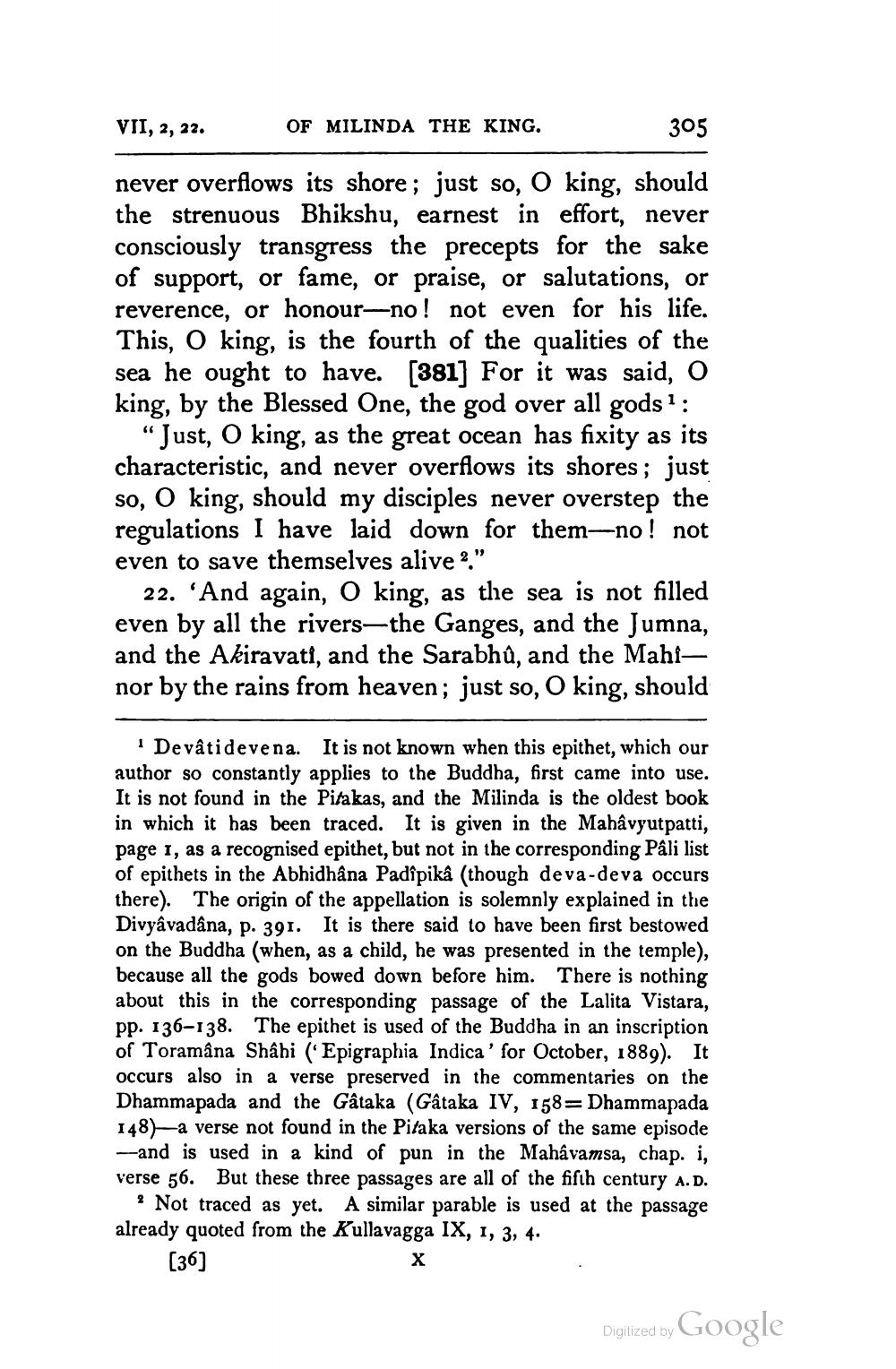________________
VII, 2, 22.
OF MILINDA THE KING.
305
never overflows its shore; just so, O king, should the strenuous Bhikshu, earnest in effort, never consciously transgress the precepts for the sake of support, or fame, or praise, or salutations, or reverence, or honour-no! not even for his life. This, o king, is the fourth of the qualities of the sea he ought to have. [381] For it was said, O king, by the Blessed One, the god over all gods 1 :
"Just, О king, as the great ocean has fixity as its characteristic, and never overflows its shores; just so, O king, should my disciples never overstep the regulations I have laid down for them-no! not even to save themselves alive ?."
22. 'And again, O king, as the sea is not filled even by all the rivers—the Ganges, and the Jumna, and the Akiravati, and the Sarabhû, and the Mahinor by the rains from heaven; just so, O king, should
Devâtidevena. It is not known when this epithet, which our author so constantly applies to the Buddha, first came into use. It is not found in the Pitakas, and the Milinda is the oldest book in which it has been traced. It is given in the Mahâvyutpatti, page 1, as a recognised epithet, but not in the corresponding Pâli list of epithets in the Abhidhâna Padîpikâ (though deva-deva occurs there). The origin of the appellation is solemnly explained in the Divyavadana, p. 391. It is there said to have been first bestowed on the Buddha (when, as a child, he was presented in the temple), because all the gods bowed down before him. There is nothing about this in the corresponding passage of the Lalita Vistara, pp. 136-138. The epithet is used of the Buddha in an inscription of Toramâna Shâhi (Epigraphia Indica' for October, 1889). It occurs also in a verse preserved in the commentaries on the Dhammapada and the Gâtaka (Gataka IV, 158= Dhammapada 148)-a verse not found in the Pitaka versions of the same episode --and is used in a kind of pun in the Mahavamsa, chap. i, verse 56. But these three passages are all of the fifth century A.D.
2 Not traced as yet. A similar parable is used at the passage already quoted from the Kullavagga IX, 1, 3, 4.
(36)
Digitized by Google




